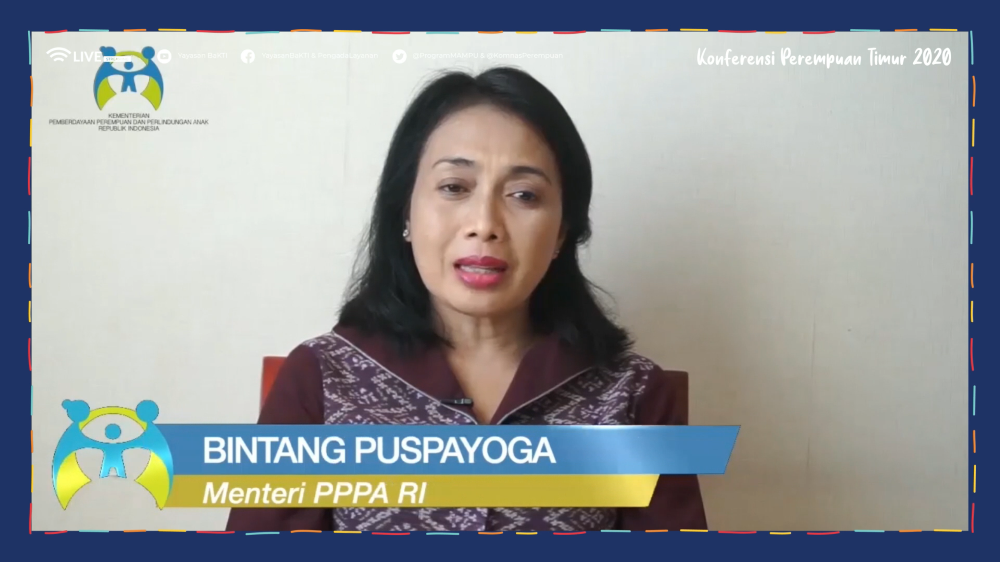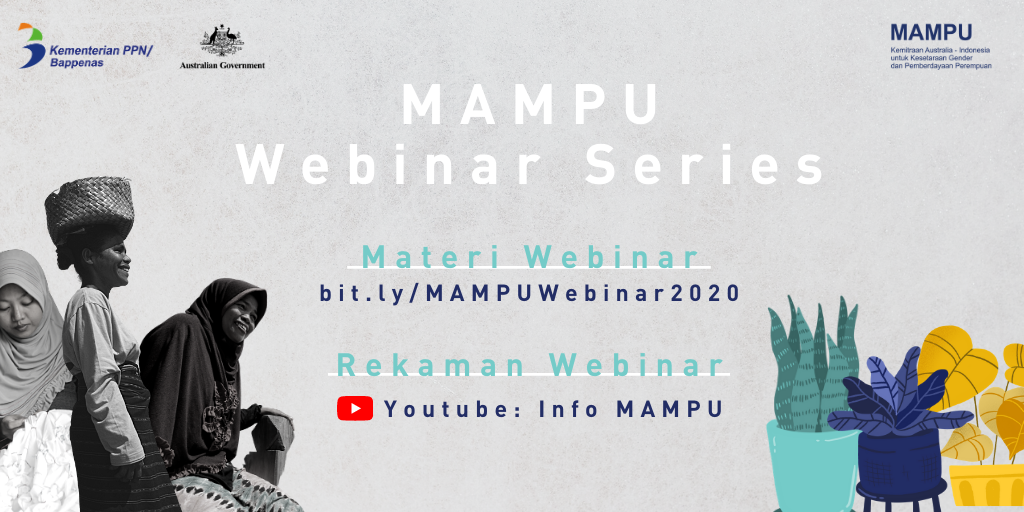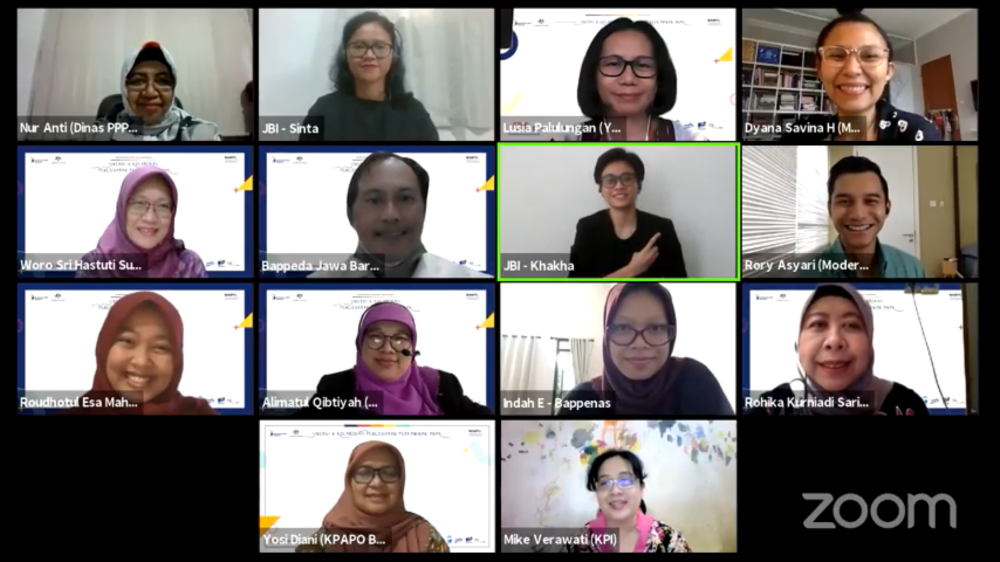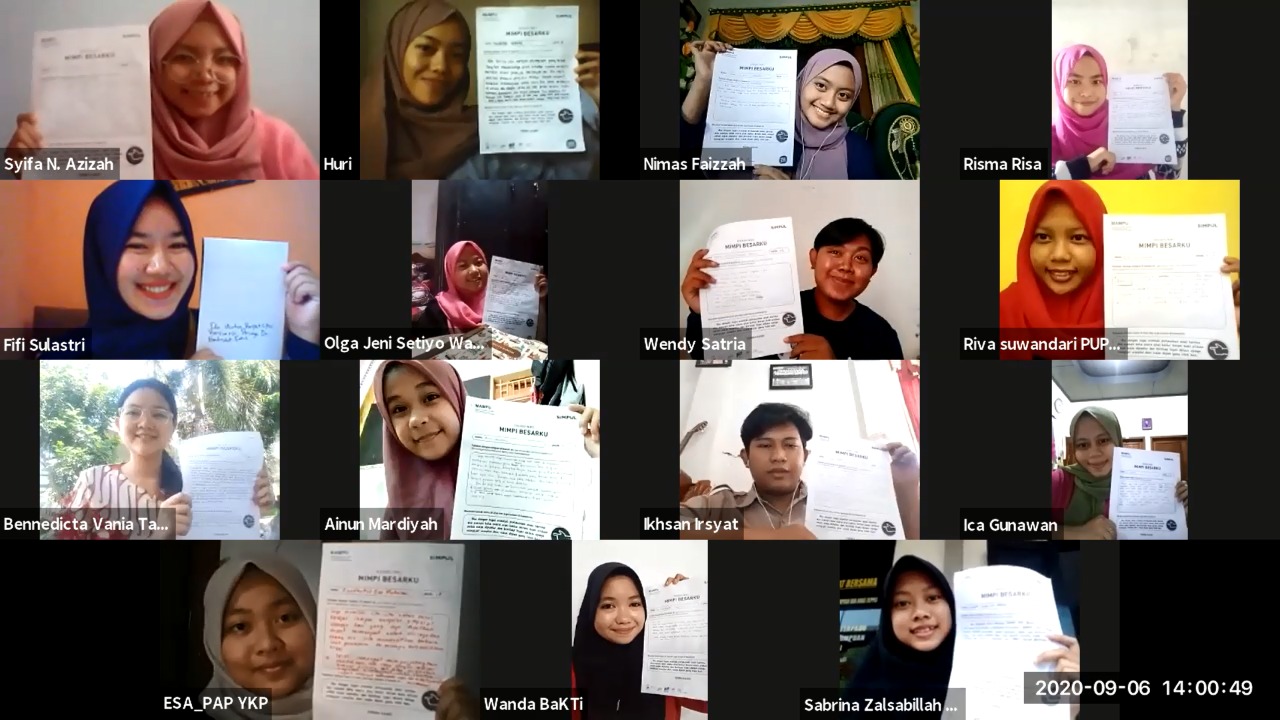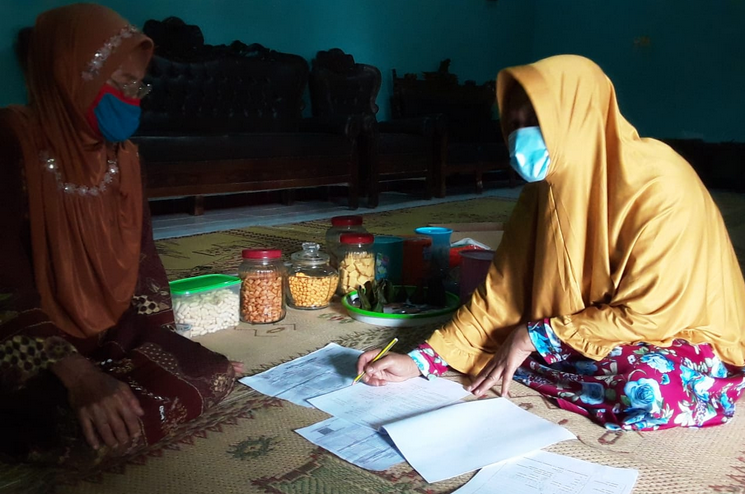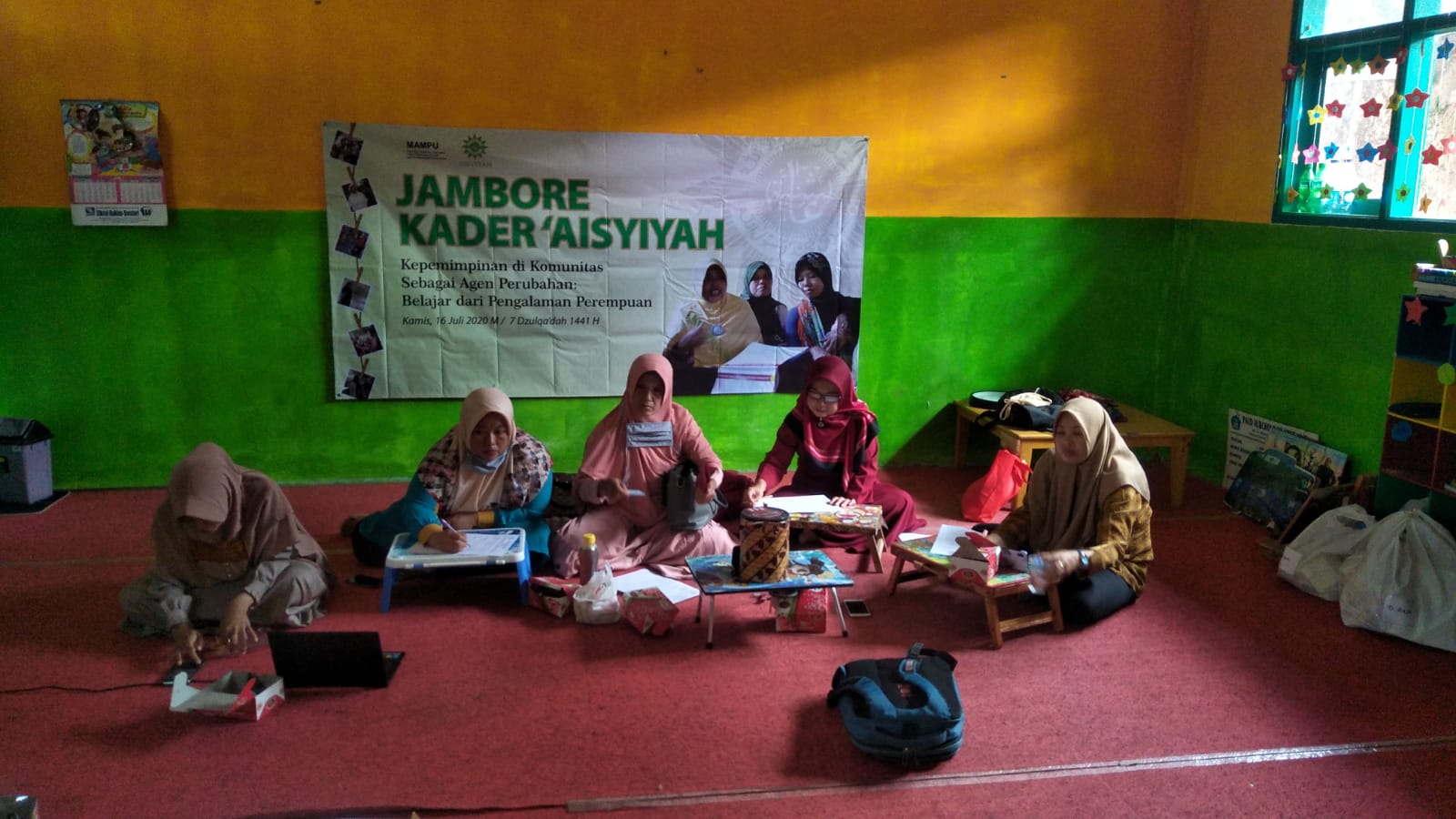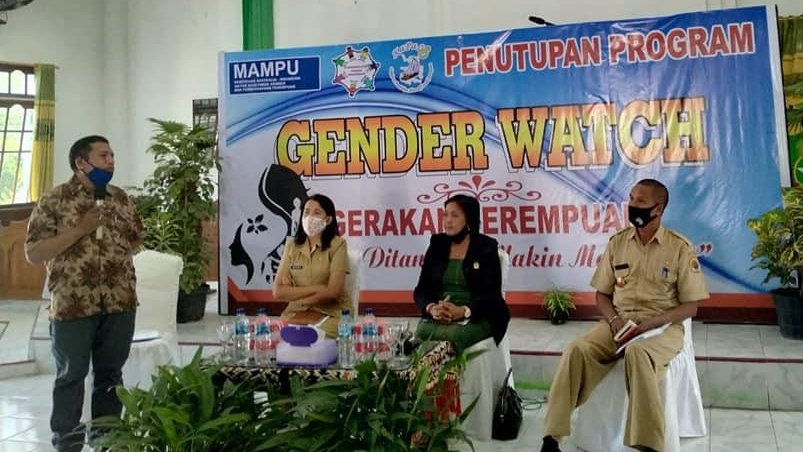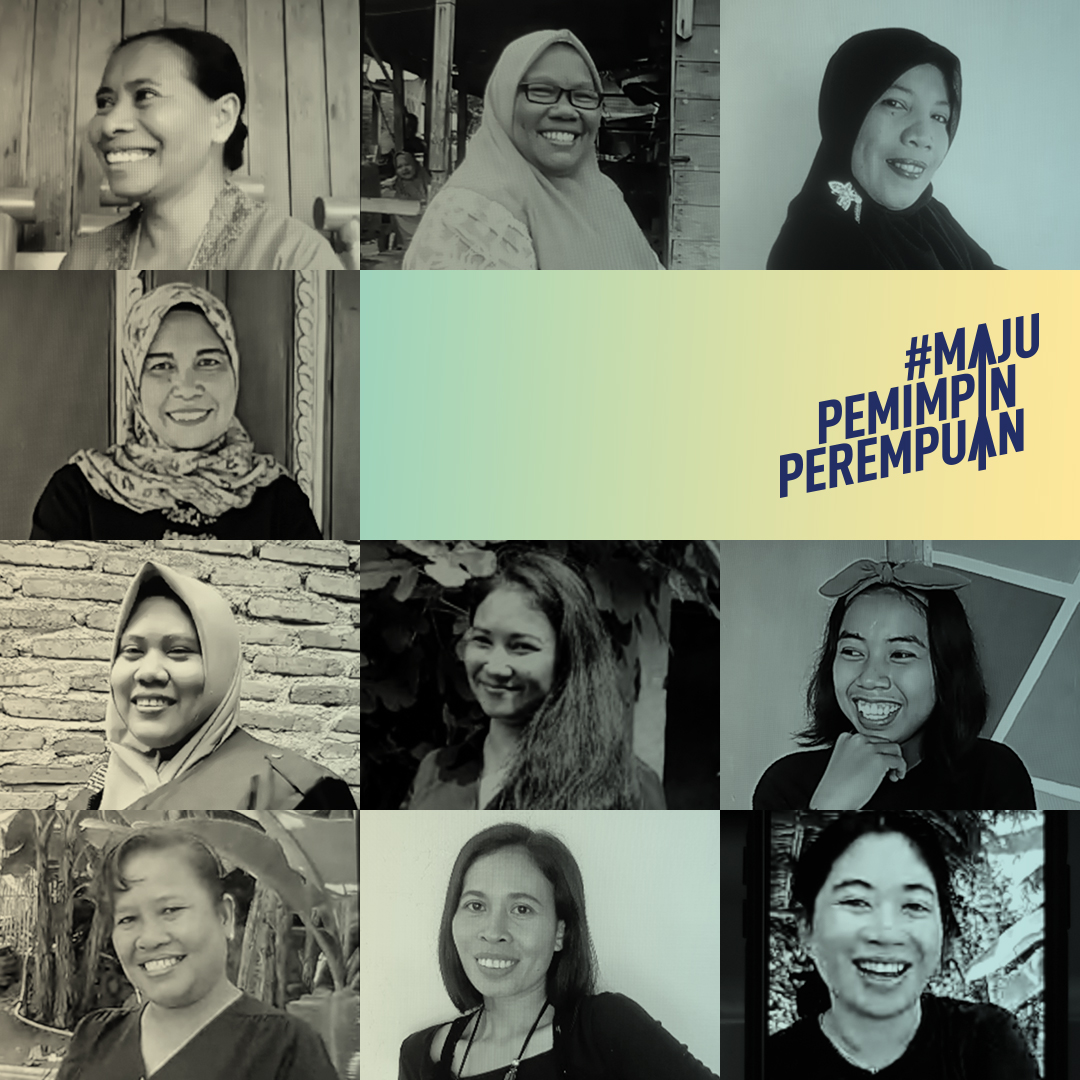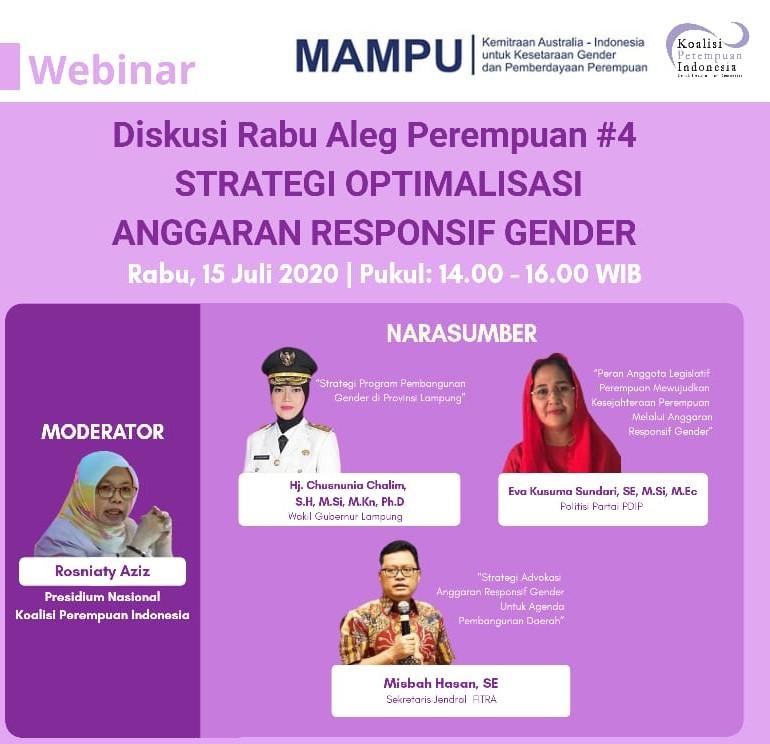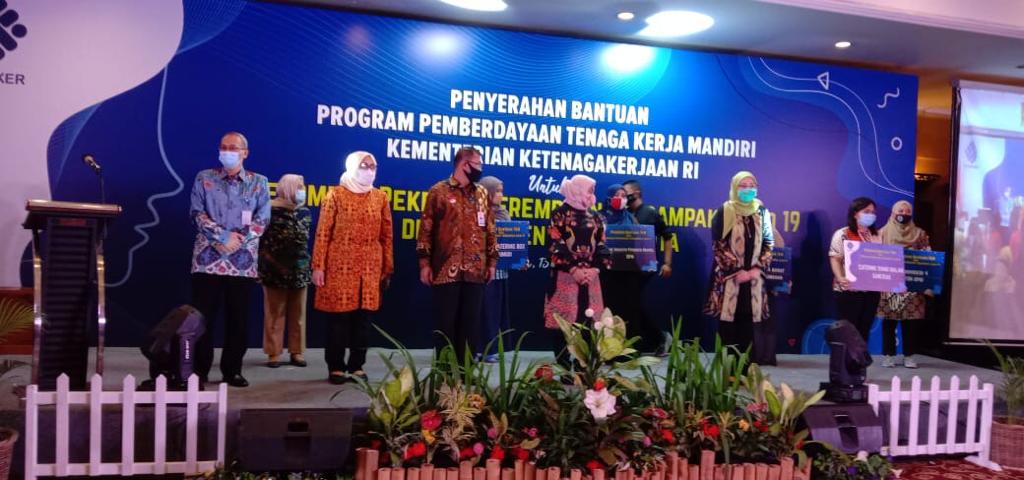Event
PEKKA is Assisting Local Governments Monitor Social Assistance Distribution during COVID-19
26 August 2020Author: Amron Hamdi

In June, MAMPU Partner the Female-Headed Family Empowerment Program (PEKKA) monitored social assistance provided to residents affected by COVID-19 through a survey of 6,553 respondents spread across 91 villages in 42 districts and 17 provinces. Twenty-two of these districts are supported by the MAMPU Program.
Before conducting the monitoring, PEKKA provided training for enumerators on 18 and 19 May to teach survey procedures, questions and data synchronisation.
According to Dwi Indah Wilujeng, PEKKA’s MAMPU Program Coordinator, the monitoring aimed to ensure that social assistance programs from the government and private sector were delivered on target.
“The results of monitoring will be used to form input for village and central governments, to improve their social protection systems during the COVID-19 pandemic,” said Wilu.
The monitoring was divided into two streams, namely:
- Family questionnaires for monitoring COVID-19 social assistance: These were used to obtain information from families about all types of social assistance programs, including from the government, private sector, and NGO’s, that had been received or not received by the community during the pandemic.
- Questionnaires for village governments for the monitoring of BLT-Dana Desa: These were used to obtain information from village government officials about villages’ policies regarding Unconditional Cash Transfers – Village Funds (BLT-Dana Desa).
After enumerators had compiled the data, PEKKA Union staff field facilitators verified it and compiled it with data from other regions up to the central level. “Data collection was carried out from 21 May to 24 June. In May, data was collected for the family questionnaire, while data for the village questionnaire was collected in June. Currently we are still in the process of processing the data to formulate recommendations,” explained Wilu.

The enumerators involved explained that collecting the data was an interesting experience and a way to make an important contribution during the pandemic. In addition to actively helping fellow citizens, enumerators also benefited from the capacity building provided by PEKKA. Asia, one of the enumerators from the PEKKA Union in Sampang District, East Java explained:
“Oh God, I was so anxious when interviewing the village head. It was with a sense of relief that I successfully finished the task. PEKKA helped make us, who used to be nervous, become courageous,” said Asia after interviewing the head of her village.
Several enumerators reported that were still residents who were not registered for and did not receive social assistance even though they met the necessary criteria to be recipients. Lismi, an enumerator from Ogan Kemering Ilir, South Sumatra, said, “Ibu Uliya, one of the respondents I interviewed, previously received rice from the subsidy rice assistance program (Raskin), however, the assistance stopped for some reason and Ibu Iluyi did not speak out about it.”
Currently, PEKKA is processing the survey data and will release the results in the near future.






